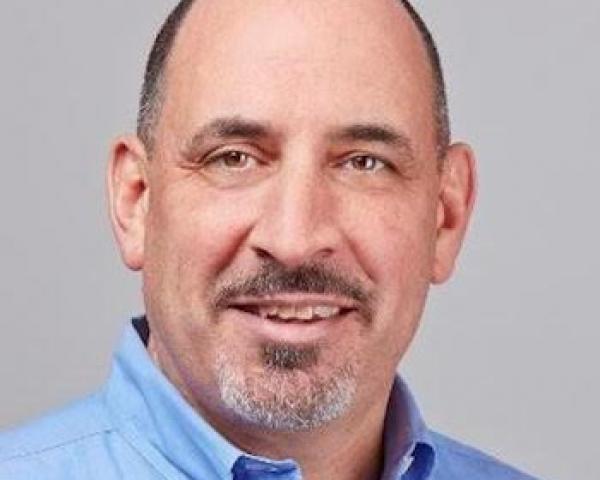In recent years, insurers have understood that many Americans face real financial challenges – whether saving for retirement or making ends meet on a monthly basis. Yet, no single company has differentiated itself in serving customer needs.
Many companies that have a stated goal of improving financial wellness have focused instead on improving financial literacy. As a result, they haven’t seen as many improved outcomes as they’d hoped. Others, who have tried to remove customer barriers to action, have found that their efforts sometimes lead to unintended consequences (e.g., auto enroll and auto increase leading to increased hardship loans because of inattention to underlying cash management issues).
In addition, those competing for share of wallet in the financial wellness space have traditionally taken an “inside-out” view, highlighting their own product features but leaving customers to sort out which types of products they can piece together to meet their varied needs. Moreover, many traditional financial wealth advisers have focused on the narrow, super-affluent customer segment, whereas a broad swath of customers who desire advice and guidance remain effectively un(der) served.
According to a 2017 PwC Financial Wellness survey, 53% of respondents who are currently employed felt stress dealing with their personal financial situation, and 46% of respondents indicated that financial stress was their primary stressor.
As of now, recent advances in technology and analytics, including in robo-assisted advice (made possible by artificial intelligence and advanced analytics), are dramatically reducing the cost of providing financial advisory services, creating a sizable market opportunity as competitors can develop sustainable business models to target a much wider range of customers.
At the same time, advances in digital experiences available to consumers have started to heighten customer expectations about the transparency, accessibility and personalization of financial advisory solutions for anyone serving this space, including insurers.
Finally, technology advances and transformative portal and services architectures are paving the way for platform economies that allow connectivity across multiple providers.
Delivering integrated financial wellness solutions
To win customers, insurers must understand what customers want, rather than focus simply on what their own products can do. In the short term, this means addressing the need most customers have to maximize their monthly budgets. In the longer term, customers want to prepare for retirement, potential emergencies, healthcare needs, college expenses and transferring wealth to younger generations.
While customer needs may seem simple and straightforward, providing advice about them is anything but, given the complex and changing economic and financial conditions facing younger workers in particular. On average, millennials are saddled with almost 300% more student debt than their parents and are earning 2.9% in average annual returns on 401(k) plans, compared with 6.3% returns for Baby Boomers. Many younger workers will need to work longer; in fact, federal data suggests that the average millennial will need to work until age 75.
See also: Ethics of Workplace Wellness Industry
Helping customers understand and manage their financial wellness suggests a need for a broad solution centered on them (not a basket of off-the-shelf products). This solution includes:
- Personalized financial information accessible via a digital platform that takes into account personal circumstances and changing lifetime needs,
- Access to an adviser/coach/counselor who offers tailored guidance, actionable solutions and answers to specific questions on a range of topics (e.g., health, wellness, finances, insurance benefits, legal services), as well as
- Access to a wide range of customizable financial products and solutions (e.g., 401K/403B accounts, life insurance, auto/home insurance and college saving plans).
Competing with others for integrated financial wellness
While retail banks, wealth managers and financial planners are typically viewed as being the best-equipped to help individuals achieve their financial goals, many of them have focused primarily on helping wealthy customers accelerate their wealth accumulation and secure access to credit, rather than the protection aspects of wellness.
More recently, they have started to consider the implications of a broader definition of financial wellness; in contrast, employers have been concerned about their employees’ holistic financial wellness and how it affects their productivity for years.
Millennials are expected to make up 50% of the workforce by 2020 and 75% by 2025, and the extent of their financial stress is particularly concerning for employers. An alarming 47% of those who feel financial stress say that they’re either missing work occasionally or their productivity at work has been affected by financial worries, and even more of them – 50% – said that they’re spending three or more hours each week at work dealing with personal financial issues.
Employers will continue to be a critical touchpoint for insurers because they serve as an effective point of access to deliver financial wellness programs to employees, and have access to a significant amount of employees’ personal financial information. Employees tend to view employers as an objective party that seeks to protect their financial well-being rather than profit from them, and employer effectiveness in delivering financial wellness solutions can improve employees’ perception of and satisfaction with their compensation (which in turn has a real impact on a company’s performance).
The competitive landscape
Considering customers’ holistic needs, the size of the financial wellness market and employer motivation to provide employees financial wellness programs, the fundamental question is how insurers can capture the market before competitors do.
It won’t be easy. The financial wellness marketplace is crowded. It ranges from traditional, established players like financial advisers at financial institutions, retirement providers, individual and group insurers all the way to consulting firms, health insurers and emerging insurtech companies.
This competitive landscape is especially complex because these institutions’ capabilities are fluid, not static; many of them form partnerships and make acquisitions to obtain leading-edge capabilities and frequently revise their business models to incorporate emerging forms of innovation.
As in the market as a whole, seamless and personalized digital delivery remains vital to provide customers a worthwhile, user-friendly experience, as well as generate actionable insights insurers can use to tailor and enhance their financial wellness offerings.
See also: A Wellness Program Everyone Can Love
We believe that whoever gains a meaningful share of the financial wellness market will:
- Focus on understanding and addressing customers’ holistic financial protection needs, rather than use the traditional “inside-out” orientation just to sell products and services.
- Offer personalized, actionable and digitally enabled financial wellness solutions that include financial products, advisory services and educational resources that continually promote improved outcomes.
- Effectively target specific customer segments.
- Develop ways to drive engagement with consumers through an advanced digital platform with real “human” support at moments of truth.
- Demonstrate positive ROI to employers.
- Derive the rich, data-driven insights into customers that enable continued improvement of financial wellness offerings.
Implications
To compete effectively, insurers will need to determine a distinct basis for differentiation and focus investment in those capabilities that are key to strengthening their way to play in the market. Potential ways to play include:
- Analytical segment specialist – Defined by the use of data-driven insights to better understand customers and provide tailored solutions to effectively meet their employees’ needs.
- Consumer experience expert – Defined by the provision of seamless end-to-end customer experiences, primarily through digital or mobile channels, to deepen relationships with both the employer and employee.
- One-stop-shop provider – Defined by providing employers and employees the ability to access and purchase all desired products or solutions in a single place using an ecosystem approach.
Real opportunity exists for insurers in the financial wellness space as the market’s current business model strains under changing socioeconomic conditions and a challenging investment environment. While the financial wellness niche was siloed in the past, forward-looking insurers must strengthen their market strategy, offerings and capabilities to gain market share in this highly crowded, competitive and converging marketplace.
This report was written by Jamie Yoder, Juneen Belknap, Kent Allison and Caitlin Marcoux.









